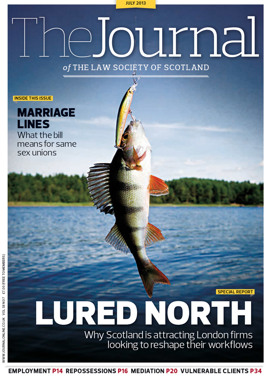Beware LLP tax changes

Changes to the way in which limited liability partnerships (LLPs) are taxed will “level the playing field in the tax treatment of all partnerships”, the Government said when it launched its consultation on two aspects of the taxation of LLPs and partnerships on 20 May.
It is consulting on the detail and seeking views on the impact of the changes, which were announced as part of this year’s Budget and are scheduled to come into force in April 2014.
The proposals aim to prevent companies and individuals from using LLPs to disguise employment, and from benefiting from the use of certain arrangements involving profits and losses among LLP members.
“The Government is committed to fairness and tackling tax avoidance and has a strong track record of doing so”, it said. “The current rules on the taxation of members of LLPs and on profit and loss allocation in LLPs and other partnerships produce outcomes that result in tax loss and are unfair to other taxpayers in certain circumstances.”
Following consultation, the changes will be introduced as part of next year’s Finance Bill and in a National Insurance Contributions Bill.
Is an LLP partner really an employee?
Among the proposed changes is the removal of the presumption of self-employment for some members of LLPs, to prevent taxpayers from using the structure to disguise an employment relationship. The current system means that LLP members receive more favourable tax treatment in relation to income tax and national insurance contributions (NICs), even if their role is closer to that of an employee in reality.
LLPs have been marketed as a way of avoiding NICs. HMRC said that at one end of the spectrum, “groups of low paid workers who would normally be regarded as employees are being taken on as LLP members”, and at the other end of the scale, “individuals who would normally be regarded as employees in high-salaried professional areas such as the legal and financial services sectors are benefiting from self-employed status for tax purposes”.
The consultation sets out a number of factors which would have to be taken into account before deciding whether a member of an LLP should be treated as an employee for the purposes of these taxes. “Salaried members” will be taxed as employees where they either receive a fixed salary, or are not exposed to risk and have no right to profits or assets if the partnership ends.
HMRC states that the changes are not intended to affect those “who are taken on as members at an appropriate point in their career in recognition of their professional knowledge and personal skills, and who sacrifice an entitlement to salary in exchange for the opportunity to participate in the business in much the same way as a senior partner, even if as junior partners they are substantially rewarded by a fixed profit share”.
Profit and loss allocation
The second change will deal with profit and loss allocation schemes, where partnerships allocate profits and losses to different members in order to reduce tax. These schemes often involve partnerships, including LLPs, which have individual and company members. In these cases, individual members may have to pay income tax at higher rates than corporate members: 45% is the top rate of income tax, compared with the corporation tax rate of 23%.
In some cases, HMRC says that a high proportion of the profits may be allocated to a corporate member, which makes little contribution to the business, in order to secure a lower rate of tax. Often, some or all of the individual partners will own the corporate member and can therefore benefit from the profits allocated to it.
The proposals will apply where the partnership is made up of a mixture of individuals and companies and where it is “reasonable to assume” that one of the main purposes of the arrangement is to secure an income tax advantage for any member of the LLP. In the case of a profit, all or part of the profits allocated to LLP members not subject to income tax will be reallocated to those who are subject to income tax. In the case of a loss, the relevant partner will not be entitled to claim income tax relief or capital gains relief in relation to the loss.
In its consultation, HMRC acknowledged that the partnership proposals were “complex”.
The consultation is at www.gov.uk/government/consultations/a-review-of-two-aspects-of-the-tax-rules-on-partnerships
In this issue
- Credit hire: back to basics
- You know who I mean
- Behind all the fun
- Your Future in Law
- Reading for pleasure
- Opinion column: Cameron Fyfe
- Book reviews
- Profile
- President's column
- Mapping out the Crofting Register
- Back office bait
- Another bite at the cherry
- Security of your home
- Marriage redefined
- Building better business cultures
- Keeping a rein on child cases
- Minimum gain
- Beware LLP tax changes
- Framework remodelled
- Scottish Solicitors' Discipline Tribunal
- A Scottish ILG chair in New York
- Beneath the surface
- Being alert to the needs of the vulnerable
- Sins of our leaders
- How not to win business: a guide for professionals
- Litigation: a tight ship?
- Ask Ash
- Why sep rep?
- From the Brussels office
- Law reform roundup
- Diary of an innocent in-houser






